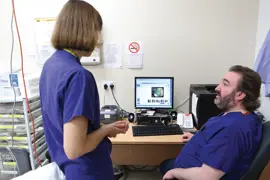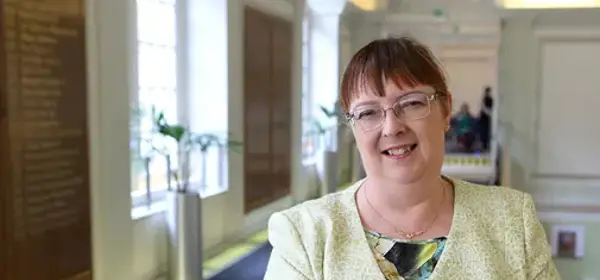
Doctors set out election challenges
BMA manifesto Patients Need Doctors outlines five areas the association wants the next Government to tackle
When a rain-soaked Rishi Sunak stood before a dripping podium outside No 10 Downing Street last month to announce a general election for 4 July, his decision seemed to take many people in the country by surprise.
With an election having previously been widely anticipated for the autumn months, the prime minister’s decision to go to the country left MPs and political pundits alike scrambling to ready themselves for a long and arduous campaign trail.
By comparison, doctors and the BMA met the news of an election with perhaps a greater state of readiness than most politicians, with vast sections of the medical profession having already been mobilised and engaged by the fight for pay restoration, for more than a year.
With weeks to go until polling day, and ahead of the launch of the main political parties’ policy platforms, the BMA has published its own manifesto, Patients Need Doctors, which outlines five critical actions on health the next UK Government must commit to.
‘This election is a chance to turn around a health service in crisis,’ warns association council chair Philip Banfield in his introduction to the manifesto.
‘Doctors are exhausted after years of being stretched beyond breaking point. They have been pushed to take industrial action following years of real-terms pay cuts leaving them feeling undervalued, working in a health service in the midst of a staffing crisis.’
Restoration of pay is indeed central to the first of the five actions set out in the manifesto, which calls for the ‘vital role doctors play across all health services’ to be better valued by those entrusted with the NHS’s management.
Specific demands include restoring doctors’ pay after years of sub-inflationary pay settlements, delivering a reformed and truly independent pay review body, and a commitment to not restoring the lifetime and annual allowances on pensions, scrapped under the previous government.
Alongside pay, the manifesto also seeks to protect doctors’ rights and patient safety by calling for an end to the substitution of doctors by medical associate professionals, a halt to recruitment of physician associates and providing new legal protections to whistleblowers in the NHS.
The BMA is also calling for the scrapping of the anti-union Strikes (Minimum Service Levels) Act and new laws that would make future governments legally accountable for safe staffing levels in the health service.
An increase in the numbers of undergraduate training places and postgraduate roles, improved job allocation for newly qualified doctors and an overhaul of the NHS bursary scheme are among the calls set out in the manifesto’s third action point.
With general practice in England already in dispute over the imposition of a reviled national contract, the BMA is calling for the next government to deliver a revised set of terms for GPs in England and Northern Ireland that will ensure the sustainability of the NHS GP partnership model.
Lastly, the BMA’s manifesto calls for the new Government to commit to investing in the health service including an injection of capital funding to improve infrastructure and restoring the public health grant in England to at least the funding levels of 2015/16.
While regarding the upcoming election as an opportunity for a fresh start and chance to renew the NHS, Dr Banfield warns that a continuation down the current path will ultimately see an ever-greater haemorrhaging of doctors from the health service and a worsening of services for patients.
‘Every day doctors have to deal with the legacy of funding failing to keep pace with demand, cuts to services across the board, and the distress of working in a broken system – knowing they cannot provide the level of care that patients deserve,’ he warns.
‘The next Government cannot allow our health services to continue this way: all parties must make the health of all their top priority, so we can give the public the care they deserve.’
- Until September 2024, resident doctors were referred to as ‘junior doctors’ by the BMA. Articles written prior to this date reflect the terminology then in use


